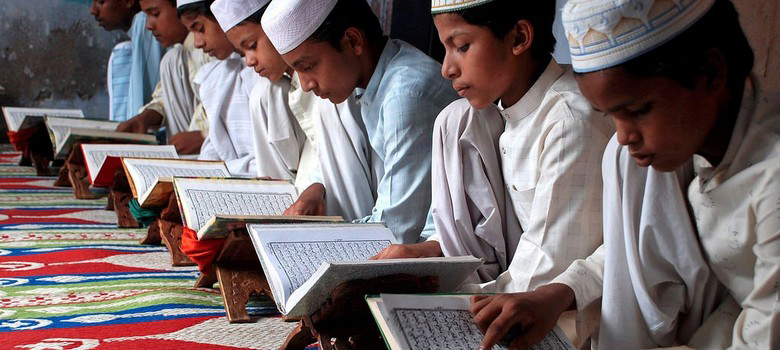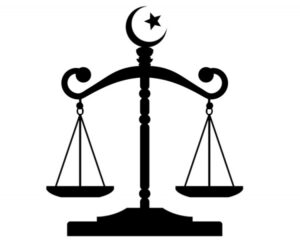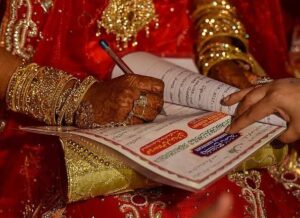Table of Contents
Introduction
Religion is a very sensitive and personal aspect of an individual’s life and the constitution of India guarantees the freedom of conscience and religion to people of all denominations. Thus, a person is free to profess any faith or relinquish his faith of birth and convert to another religion.
Conversion to Islam is the process whereby a non-Muslim takes on a new religious identity, adopts new beliefs and practices, learns to live as a Muslim and gradually becomes accepted as one by others. Conversion involves learning, not just the tenets and practices of Islam, but also about how to live as a Muslim.
Islam makes a distinction between conversion to Islam and conversion from Islam. The former is called Ihtida or Hidayah (divine guidance), whereas the latter is Irtidad (apostasy).
Who Can Convert To Islam & Tests Of True conversion
A non-Muslim, who has attained majority and is of sound mind may embrace Islam in any of two modes:-
- he may simply declare that he believes in the oneness of God and the Prophetic character of Mohammad, or
- he may go to a mosque, to a person who is well versed in Islamic theology (Alim), where he utters Kalma (Lailaha-ill-Allah- Muham-mad-ur Rasoolullah) before Imam, whereupon he is given a Muslim name by the Imam.
A convert must formally profess to be a Mohammedan. It is however, necessary that the conversion must be bonafide; the Court will not permit any one to commit a fraud upon the law by pretending to be a convert to Islam in order to elude the personal law by which he is bound.
In the case of Abdool Razack v. Aga Mohamed, it was argued before the Privy Council that –
“No court can test or gauge the sincerity of religious belief. In all cases where according to the Mahomedan Law, unbelief or difference of creed is a bar to a marriage with a true believer, it is enough if the alien in religion embraces the Mahomedan faith. Profession with or without conversion is necessary and sufficient to remove the disability“.
The same principles of Abdool Razack case were applied in many other cases as in-
In Skinner v. Orde, (1871), Helen Skinner was married according to Christian rites with George Skinner who died in the lifetime of Helen. Thereafter Helen cohabited with John Thomas who was married to a Christian wife, who was alive at that time. In order to legalize their union, Helen and John, both got themselves converted into Islam.
“However, their conversion was not held to be bonafide. Their Lordships of the Privy Council held that this conversion was a pretended conversion for the purposes of bigamy which was not permissible under law.”
In Rikhya Bibi v. Anil Kumar, (1948) a Hindu woman accepted Islam in order to get rid of her Hindu husband, who was impotent. It was held that her conversion to Islam was colourable and was effected with intent to commit a fraud upon the law, and was therefore invalid and ineffective.
Conversion to Islam and Martial Rights
According to Muslim Law, a distinction, is made between conversion to Islam of one of the spouses when such conversion takes place-
- In a country subject to Muslim Law, then one of the parties who embraces Islam, he should offer Islam to the other spouse, if the latter refuses, the marriage can be dissolved.
- In a country where the Law of Islam is not the law of the lane, then the marriage is automatically dissolved after the lapse of a period of three months after the adoption of Islam by one of the spouses.
However, the courts in India do not administer the laws of any particular community but they administer such laws as are valid in India. Muslim Laws is administered only in those cases where it happens to be the law of India and where the parties are muslims.
In the case of Robaba Khanun vs Bomanji Itani, 1946, it was held that the spouse who has become a convert to Islam can sue for divorce or a declaration of dissolution of the marriage on the ground that the other spouse has refused to adopt the Muslim religion.
In Sarla Mudgal v. Union of India (1955), the Supreme Court has held that the second marriage of a Hindu husband after conversion to Islam without having his first marriage dissolved under law would be invalid. The second marriage would be void in terms of the provision of Section 494, IPC and the apostate husband would be guilty of the offense under Section 494 of IPC.
In Lily Thomas v. Union of India, the Supreme Court has observed that “Change of religion does not dissolve the marriage performed under the Hindu Marriage Act between two hindus. Apostasy does not bring to an end the civil obligation or matrimonial bond but it is a ground for divorce under Section 13 as well as ground for judicial separation under Section 10 of Hindu Marriage Act.”
Similarly, in Govt Of Bombay vs Ganga (1880), the conversion of a Hindu wife to Islam does not ipso facto dissolve her marriage with her husband. She cannot enter into a valid contract of marriage with any other person during the life-time of her husband. And if she goes through a ceremony of marriage after conversion to Islam she will be guilty of Bigamy under Section 494, I.P.C.
Conversion To Islam & Rights Of Guardianship
According to Mohammedan Law an apostate has no right to contract a minor in marriage. It is enacted however, by Caste Disabilities Removal Act of 1850, that “no law or usage shall inflict on any person who renounces his religion any “forfeiture of rights of property”.
Similarly, in Muchoo v. Arzoo (1866), it was held that “A Hindu father is not deprived of his right to the custody of his children and to direct their education by reason of his conversion to Christianity.” It is submitted that the decision in Muchoo’s case is correct . But the court may in its discretion deal with each case on its own merits.
Conversion to Islam & Rights of Inheritance
In the absence of a custom to the contrary, in case of a Hindu converts to Islam, succession and inheritance are governed by Mohammedan Law and not by Hindu law.
Where a Hindu, who had a Hindu wife and children, embraced Islam and married a Muslim woman and had children by her, his property would pass on his death to his Muslim wife and children and not to his Hindu wife or children because under Muslim Law, a Hindu cannot succeed to the estate of a Muslim.
Conversion to Islam & Right To Maintenance
In Muslim law, if a person converts to other religion, it affects a forfeiture of the pre- existing maintenance rights. When a husband renounces Islam, the marriage comes to an end and the wife can claim maintenance from husband during the iddat period.
Effects of conversion to Islam
The legal consequences that follow by conversion, may be summarized as under:
- The religion of Islam is substituted for the previous religion of the convert to Islam, with so much of the personal law as necessarily follows from that religion;
- The rights and status of the convert become subject to the Mohammedan law;
- His apostasy (abandonment of religion) has an immediate and prospective effect, from the moment of the conversion and is not retrospective;
- Conversion of the both spouses, without any intention to commit fraud upon the law, will have the effect of altering the rights incidental to marriage.
- Succession to the estate of a convert is governed by Muslim Law.
Conversion & Retention To Their Original Laws
Before the Shariat Act, 1937
A convert to Islam may carry his original laws and usages with him and may be governed by them even after conversion to Islam; and it has been held that the following persons are governed by the Hindu Law of Inheritance and Succession, though they profess the Muslim religion such as:
1. Khojas;
2. Cutchi Memons and Halai Memons;
3. Sunni Bohras of Gujarat; and
4. Molesalam Girasias of Broach.
Law after the Shariat Act, 1937
The Shariat Act has abolished the customary law of intestate succession of Khojas and Cutchi Memons except as to agricultural land and other matters to which the Act does not apply and made them subject to the Muslim Law.
In the case of Ashraf Ali vs Rajab Ali (1945)
“After the passing of Shariat Act, 1937, a Khoja can still Will away the whole property, but questions relating to the making or the revocation of a Will, and to the validity of trusts and wakfs wil be determined by the principles of Muslim Law.”
Conclusion
The Supreme Court Marking an observation on the fundamentality of Article 25 of the constitution, Justice Sanjeev Sachdeva said, “(Religious) conversion is not prohibited in law. Every person has a right to choose and profess any religion of his/her choice. It is a Constitutional right. If someone is forced to convert, then it’s a different issue but to convert is a person’s prerogative.”



